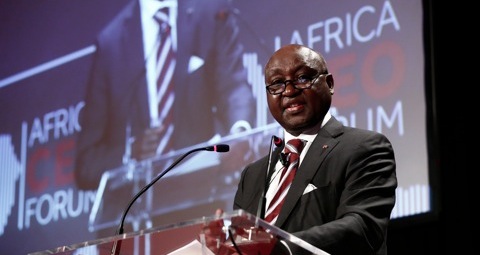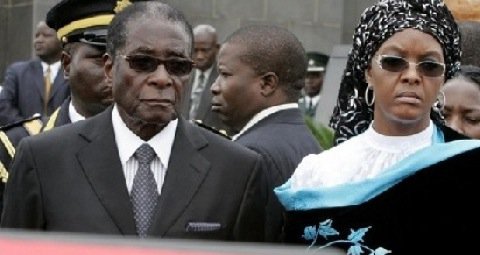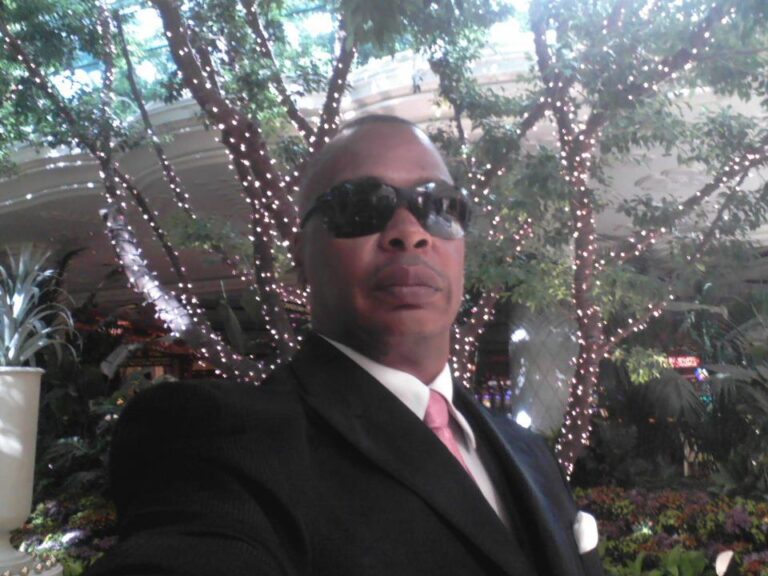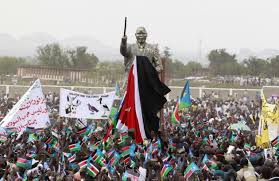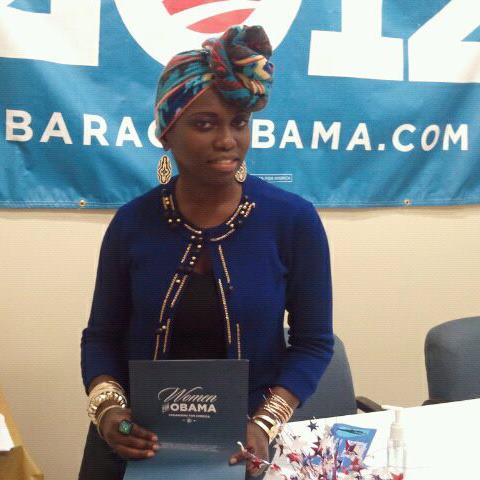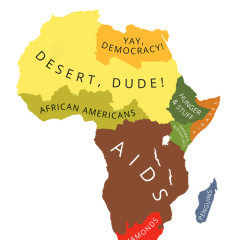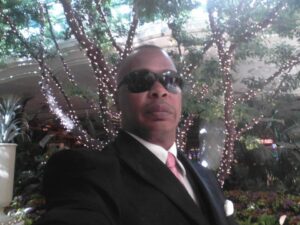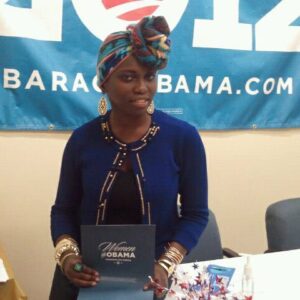Wikileaks for Africa? Introducing Afrileaks
January 13, 2015
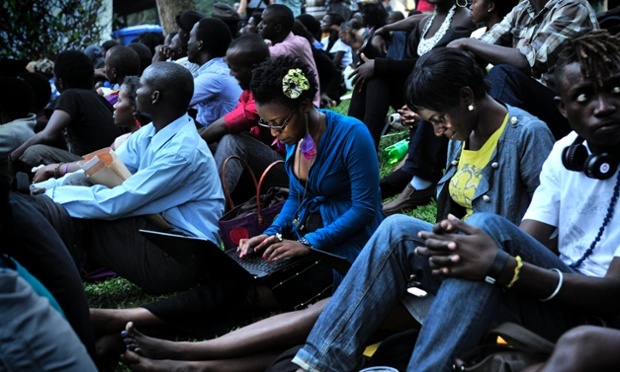 Whistleblowers that we spoke with were not aware of measures such as encrypted email” Photograph: Yannick Tylle/Yannick Tylle/Corbis[/caption]
A new service launching today hopes to safely connect whistleblowers with investigative journalists, encouraging a ‘new culture of accountability and justice’ across the continent
When Zimbabwean politician Edward Chindori-Chininga died in a car crash in 2013, some believed the circumstances had been “suspicious”.
Soon after the death of the country’s former minister for energy and mining, the news outlet New Zimbabwe reported that Chindori’s colleagues had said he had known he was a “marked man” after his department released a report “claiming millions of dollars in taxes paid by companies mining diamonds” in the controversial Marange diamond fields “had vanished.”
Khadija Sharife, an investigative journalist based in South Africa, says Chindori-Chininga’s case serves as just one example of why Africa is in need of a project like Afrileaks, which aims to help train a new generation of investigative journalists about how to safely use leaked material.
Afrileaks, which launches today, is designed to securely connect whistleblowers with media organisations across Africa, and is the first of its kind to provide ongoing technical training in how to “verify and investigate the quality of leaks”.
Since the Wikileaks Iraq war logs and Edwards Snowden’s revelations about America’s NSA, whistleblowing has gained global attention, but Sharife and her colleagues at Afrileaks say that many journalists across Africa lack investigative skills, and often have little understanding of the dangers they could face in investigating leaks.
“Whistleblowers that we spoke with were not aware of measures such as encrypted email,” Sharife says. “Nor did many have the experience to pursue the safest means of transmitting information.”
The secure web service, developed in partnership with Italy’s Hermes Center for Transparency and Digital Human Rights and the Africa Network of Centers for Investigative Journalism (ANCIR), will allow individuals to send information “without fear of being compromised and exposed,” says Sharife. The site will become “live” for leaks from today.
The leak is never the story
Media outlets that have already signed up to the initiative include South Africa’s Mail & Guardian, Botswana’s Guardian newspaper, The Zimbabwean, and Mozambique’s Verdade. Journalists are taught skills such as sourcing and cross-examination, and how to assess for consistency, bias, contradiction, reliability and metadata – knowledge that Sharife argues is vital in developing a cohort of reporters who are able to hold organisations and governments to account.
The sessions are taught by a panel of experts, including Friedrich Lindenberg, whose work fuses software development, journalism and open government advocacy, and Luis Nhachote, an award-winning Mozambican journalist working with Verdade.
Three of the ten lowest listings on the press freedom index are in Africa – with Eritrea ranked lowest in the world in 2014, closely followed by Somalia and Sudan.
Leigh Baldwin, an investigative journalist at Global Witness, a media organisation partnering with Afrileaks, says that it is this sensitivity to issues of censorship and local history that makes Afrileaks unique.
“Too often, corruption and human rights violations go unreported in Africa because of the risks faced by sources,” Baldwin says. “By connecting leakers directly with trusted partners, AfriLeaks provides a way for local and international journalists to work together to expose abuses and get important stories out.”
Unlike Wikileaks, however, Afrileaks won’t publish any information itself. It will act only as a facilitator, a “highly secure mailbox”. The whistleblower can send files to the site securely, they say, and nominate the media organisation they want to want to receive the leaks. They can choose to remain anonymous, or continue to be part of the subsequent investigation.
“The leak is never the story,” Sharife says. “They are always just the lead.”
Whistleblowers that we spoke with were not aware of measures such as encrypted email” Photograph: Yannick Tylle/Yannick Tylle/Corbis[/caption]
A new service launching today hopes to safely connect whistleblowers with investigative journalists, encouraging a ‘new culture of accountability and justice’ across the continent
When Zimbabwean politician Edward Chindori-Chininga died in a car crash in 2013, some believed the circumstances had been “suspicious”.
Soon after the death of the country’s former minister for energy and mining, the news outlet New Zimbabwe reported that Chindori’s colleagues had said he had known he was a “marked man” after his department released a report “claiming millions of dollars in taxes paid by companies mining diamonds” in the controversial Marange diamond fields “had vanished.”
Khadija Sharife, an investigative journalist based in South Africa, says Chindori-Chininga’s case serves as just one example of why Africa is in need of a project like Afrileaks, which aims to help train a new generation of investigative journalists about how to safely use leaked material.
Afrileaks, which launches today, is designed to securely connect whistleblowers with media organisations across Africa, and is the first of its kind to provide ongoing technical training in how to “verify and investigate the quality of leaks”.
Since the Wikileaks Iraq war logs and Edwards Snowden’s revelations about America’s NSA, whistleblowing has gained global attention, but Sharife and her colleagues at Afrileaks say that many journalists across Africa lack investigative skills, and often have little understanding of the dangers they could face in investigating leaks.
“Whistleblowers that we spoke with were not aware of measures such as encrypted email,” Sharife says. “Nor did many have the experience to pursue the safest means of transmitting information.”
The secure web service, developed in partnership with Italy’s Hermes Center for Transparency and Digital Human Rights and the Africa Network of Centers for Investigative Journalism (ANCIR), will allow individuals to send information “without fear of being compromised and exposed,” says Sharife. The site will become “live” for leaks from today.
The leak is never the story
Media outlets that have already signed up to the initiative include South Africa’s Mail & Guardian, Botswana’s Guardian newspaper, The Zimbabwean, and Mozambique’s Verdade. Journalists are taught skills such as sourcing and cross-examination, and how to assess for consistency, bias, contradiction, reliability and metadata – knowledge that Sharife argues is vital in developing a cohort of reporters who are able to hold organisations and governments to account.
The sessions are taught by a panel of experts, including Friedrich Lindenberg, whose work fuses software development, journalism and open government advocacy, and Luis Nhachote, an award-winning Mozambican journalist working with Verdade.
Three of the ten lowest listings on the press freedom index are in Africa – with Eritrea ranked lowest in the world in 2014, closely followed by Somalia and Sudan.
Leigh Baldwin, an investigative journalist at Global Witness, a media organisation partnering with Afrileaks, says that it is this sensitivity to issues of censorship and local history that makes Afrileaks unique.
“Too often, corruption and human rights violations go unreported in Africa because of the risks faced by sources,” Baldwin says. “By connecting leakers directly with trusted partners, AfriLeaks provides a way for local and international journalists to work together to expose abuses and get important stories out.”
Unlike Wikileaks, however, Afrileaks won’t publish any information itself. It will act only as a facilitator, a “highly secure mailbox”. The whistleblower can send files to the site securely, they say, and nominate the media organisation they want to want to receive the leaks. They can choose to remain anonymous, or continue to be part of the subsequent investigation.
“The leak is never the story,” Sharife says. “They are always just the lead.”
Public interest
Giovanni Pellerano, a 29-year-old computer engineer from Italy and one of the many architects behind the Afrileaks software explains that it’s vital the project provides ongoing support to its partners.
“Whistleblowing is an important instrument that should be used carefully, so future training is now being planned and will continue to take place regularly.” Two sessions already took place in 2014, in Maputo and Johannesburg.
Pellerano was one of the founders of
GlobaLeaks back in 2011, when a chat with friends turned into developing free software in order to make it possible “for non-techy people to easily set up secure anonymous whistleblowing initiatives in the public interest.”
Since then, Pellerano has gone on to develop software for various organisations, but Afrileaks is his first project outside the western world.
Life and death?
But what unique risks do African leakers face? And why launch this service now?
For years, companies in South Africa have employed whistleblowing mechanisms to try and root out internal fraud and corruption, with a degree of success. But the
2014 PwC Economic Crime Survey has charted a recent decline in the practice. In 2007, the report says 16% of corporate crime was detected through whistleblowing. In 2013, that figure had dropped to six per cent, though it increased slightly last year. The report suggests this may be due to concerns over the power of companies, and South African law, to protect whistleblowers.
Sharife argues that the stakes are now higher – following the leaks by
Chelsea Manning and
Snowden – than ever before, and for all parties involved.
“We have seen how vicious the response is, but the truth is worth fighting for, whatever the consequences,” she says.
Both Sharife and Pellerano say that everyone working at the project is acutely aware that in some cases, leaking information can be a case of life and death. They say Afrileaks will try to take as many steps as it can to protect whistleblowers, but also want to stress that leaking sensitive information always comes with risks, especially in Africa.
“In terms of investigations, there are various challenges that affect whistleblowers,” Pellerano explains. “Censoring, surveillance, legal liability, physical risk, intimidation, and other issues. But all these restraints are exacerbated, to a great extent, in African countries.”
*Source
theguardian]]>

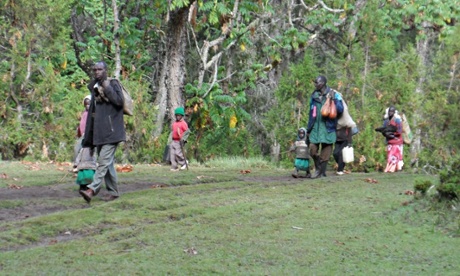


 Whistleblowers that we spoke with were not aware of measures such as encrypted email” Photograph: Yannick Tylle/Yannick Tylle/Corbis[/caption]
A new service launching today hopes to safely connect whistleblowers with investigative journalists, encouraging a ‘new culture of accountability and justice’ across the continent
When Zimbabwean politician Edward Chindori-Chininga died in a car crash in 2013, some believed the circumstances had been “suspicious”.
Soon after the death of the country’s former minister for energy and mining, the news outlet New Zimbabwe
Whistleblowers that we spoke with were not aware of measures such as encrypted email” Photograph: Yannick Tylle/Yannick Tylle/Corbis[/caption]
A new service launching today hopes to safely connect whistleblowers with investigative journalists, encouraging a ‘new culture of accountability and justice’ across the continent
When Zimbabwean politician Edward Chindori-Chininga died in a car crash in 2013, some believed the circumstances had been “suspicious”.
Soon after the death of the country’s former minister for energy and mining, the news outlet New Zimbabwe 